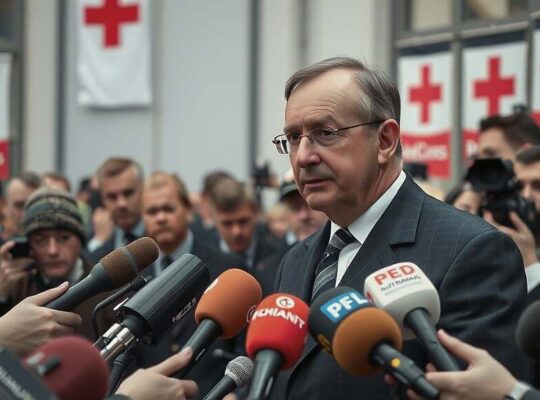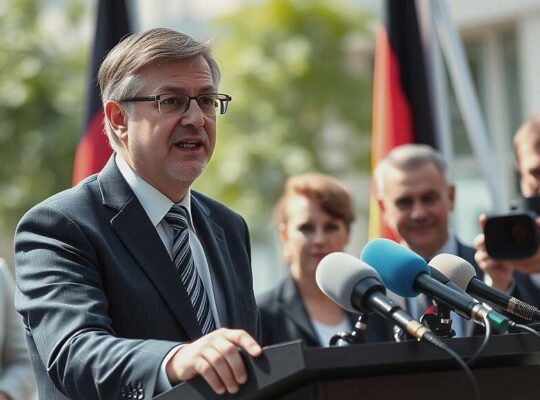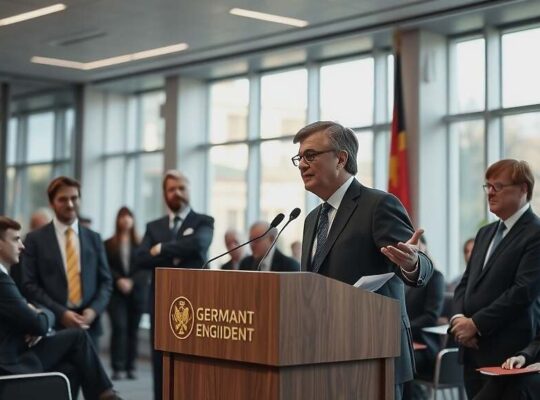Germany’s Foreign Minister Johann Wadephul has embarked on a groundbreaking visit to Syria, marking a significant shift in Berlin’s policy towards the Assad regime. Accompanied by members of the Bundestag, Wadephul’s visit, part of a wider Middle Eastern tour including Lebanon and Bahrain, signals a move towards normalizing relations and engaging with Damascus amidst ongoing political and humanitarian complexities.
Addressing the profound challenges facing Syria, Wadephul stated his intention to support the Syrian people in shaping their own future, acknowledging the “nightmare” endured throughout twelve years of brutal civil war. He emphasized the fundamental requirement of a government that guarantees dignity and security for all Syrians, regardless of background, as a prerequisite for establishing a free, secure and stable nation.
The visit comes with a commitment from Germany to contribute to Syria’s reconstruction, notably through the gradual removal of economic sanctions, a move that has drawn criticism from some quarters concerned about legitimizing the Assad regime. Berlin’s planned support extends to humanitarian assistance, demining operations and facilitating the rapid establishment of a German embassy in Damascus. Furthermore, Germany intends to encourage investment in Syria’s economy by German businesses, a prospect laden with potential pitfalls given the prevailing instability and lack of transparency.
Reflecting on the historical ties between Germany and Syria, Wadephul acknowledged the over one million Syrian refugees who have sought refuge in Germany, many of whom have integrated and found a new home. He recognized the possibility of Syrian citizens considering repatriation and expressed a desire to strengthen this “special relationship” during his visit.
However, the normalization strategy faces significant hurdles. Critics argue that engaging with the Assad regime without strict conditions regarding human rights and a genuine commitment to political reform risks rewarding a government implicated in widespread atrocities. The potential for economic investments to disproportionately benefit those connected to the regime, rather than the Syrian population, also remains a major concern.
While Wadephul’s visit represents a deliberate attempt by Germany to play a constructive role in Syria’s future, the success of this approach hinges on the Syrian government’s willingness to embrace meaningful change and the international community’s unity in ensuring accountability and promoting a genuinely inclusive society. The potential for a return to instability and a deepening of ongoing humanitarian crises remains a substantial risk.












